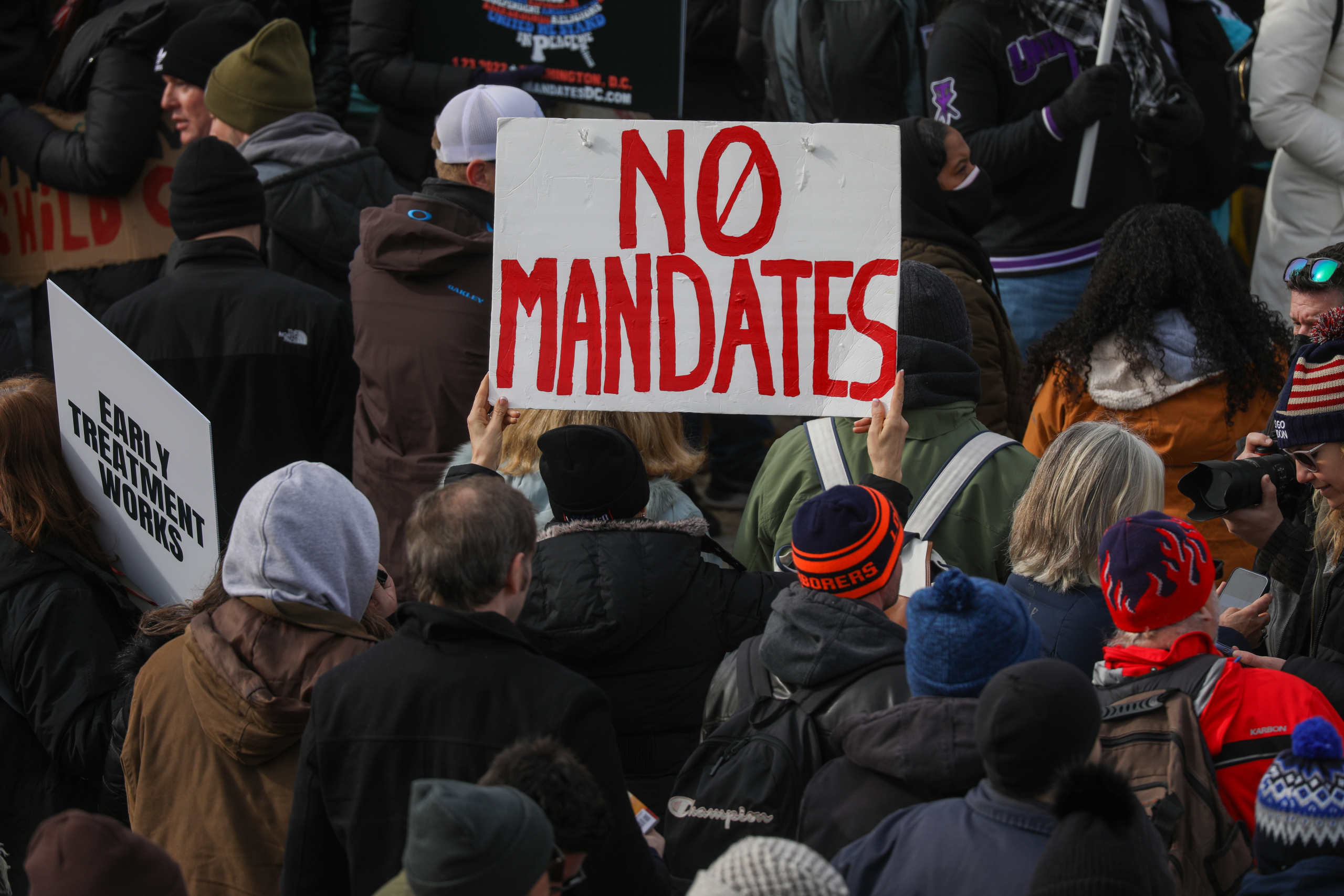President Biden’s workplace COVID vaccine mandate is being withdrawn as of today, Wednesday, January 26, after failing to gain traction in the courts.
At Biden’s instruction, the Occupational Safety and Health Administration (OSHA) formalized a rule in November 2021 that employers with 100 or more workers must require proof of vaccination from those employees, or submit to weekly COVID testing. While some lauded the emergency measure, others judged it a case of executive overreach, and legal challenges swiftly followed. With several court losses, including one at the Supreme Court, OSHA evidently saw the writing on the wall and voluntarily opted to withdraw the measure.
However, that is not the end of the story. While it has rescinded the mandate as an emergency measure, the federal agency is repackaging it as part of a permanent workplace safety standard.
In a brief announcement, OSHA stated that it “is withdrawing the vaccination and testing emergency temporary standard issued on Nov. 5, 2021, to protect unvaccinated employees of large employers with 100 or more employees from workplace exposure to coronavirus.”
The agency wasn’t happy about the decision, however. It maintained that “OSHA strongly encourages vaccination of workers against the continuing dangers posed by COVID-19 in the workplace.”
Nails In The Coffin
Among both the mandate’s wins and losses at court, a Jan 13. Supreme Court ruling was the final nail in the coffin. The Court did not make a final judgment on the constitutionality of the directive, only ruling that it could not be enforced while debate continued through the judicial system. However, the decision indicated that such a mandate remains beyond the powers of the executive agency. According to six of nine justices, such a sweeping law should originate from Congress.
“Although Congress has indisputably given OSHA the power to regulate occupational dangers, it has not given that agency the power to regulate public health more broadly,” the Court stated.
“Not only must the federal government properly invoke a constitutionally enumerated source of authority to regulate in this area or any other,” wrote Justice Neil Gorsuch. “It must also act consistently with the Constitution’s separation of powers. And when it comes to that obligation, this Court has established at least one firm rule: ‘We expect Congress to speak clearly’ if it wishes to assign to an executive agency decisions ‘of vast economic and political significance.’”
Liberty Nation’s Legal Affairs Editor Scott D. Cosenza explained what this meant for OSHA:
“The OSHA mandate is done unless and until lower courts rule it is valid, and the Supreme Court agrees. However, such an outcome is very unlikely, given the language and principles motivating Thursday’s ruling. That is why it’s such a significant loss for the Biden administration and advocates of federal power with few if any limits.”
Is OSHA giving up, or just making a tactical retreat, to return with a more legally sound alternative?
The agency will reportedly ask the 6th Circuit Court of Appeals to dismiss all ongoing lawsuits against the agency pertaining to the mandate, yet insists this is not the end. While OSHA is scrapping the mandate as an enforceable emergency rule, it stated, “the agency is not withdrawing the ETS [emergency temporary standard] as a proposed rule. The agency is prioritizing its resources to focus on finalizing a permanent COVID-19 Healthcare Standard.”
Will Americans see a return of the policy in a permanent health care standard? It is technically possible, but it seems unlikely given the emergency mandate’s fate in the courts.
The Future of Mandates?

(Photo by Yasin Ozturk/Anadolu Agency via Getty Images)
All this does not mean every Biden vaccine mandate is off the table. At the same time as SCOTUS halted OSHA’s efforts, it ruled in favor of a separate directive that empowers the Department of Health and Human Services to require vaccines for workers at health care facilities that take federal funds. That regulation was deemed enforceable as it continues to make its way through the court system.
Other mandates remain in legal limbo, too, including another Biden executive order requiring inoculations for federal workers. That decree was recently struck down by a Texas district judge, though an appeal is expected. While over 90% of federal employees are reported to be inoculated against COVID, Judge Jeffrey Brown reprimanded the president, saying it was not within his power to “with the stroke of a pen and without the input of Congress, require millions of federal employees to undergo a medical procedure as a condition of their employment.”
While vaccine mandates for federal workers and contractors haven’t yet reached their final resolution, private businesses are no longer bound by an executive order that sought to demand a medical procedure for some 80 million Americans. Many see this as a win for freedom and the U.S. system of checks and balances – but what’s next? With an impending rebrand by OSHA for the vaccine mandate, Americans may soon be in for round two.
In the meantime, employees may not necessarily be immune from vaccine rules; with private companies able to create their own worker requirements, it remains to be seen how many will continue to demand proof of vaccination, even when the government is not forcing their hand.
While many small businesses have been unable to survive lockdown, and wealth has concentrated in the hands of fewer and fewer billionaires, the post-COVID economy is suffering from staff shortages in a multitude of industries. As many choose to rely on government payouts, become entrepreneurs, or turn to full-time childrearing due to remote or homeschooling, at least those who remain in the workforce should have plenty of options when it comes to finding an employer willing to match their needs – whether that involves vaccine requirements, or the lack of one.
~ Read more from Laura Valkovic.



